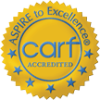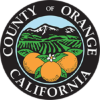Detox and Benzo Withdrawals
Withdrawal symptoms from benzodiazepines can vary in severity and duration depending on the specific benzo, dosage, duration of use, and individual characteristics. Common withdrawal symptoms experienced during benzo detox in Orange County may include:
1. Anxiety: Increased anxiety or panic attacks are common during benzodiazepine withdrawal. It can be more intense than the underlying anxiety that led to benzo use initially.
2. Insomnia: Difficulty falling asleep or staying asleep is a common withdrawal symptom. Sleep disturbances may persist for several weeks or even longer.
3. Irritability: Mood swings, irritability, and agitation are expected during withdrawal. Emotional instability and frustration are often experienced.
4. Tremors: Shaking or tremors, especially in the hands, can occur during benzodiazepine withdrawal. These tremors may range from mild to severe.
5. Sweating: Increased perspiration and night sweats can be observed during withdrawal. Sweating is often accompanied by feelings of discomfort.
6. Nausea and gastrointestinal issues: Digestive disturbances, such as nausea, vomiting, stomach cramps, and diarrhea, are common benzo withdrawal symptoms.
7. Headaches: Headaches, including tension headaches or migraines, can occur during withdrawal.
8. Sensory disturbances: Heightened sensitivity to light, sound, or touch may be experienced. Some individuals may also report numbness or tingling in the extremities.
9. Muscle pain and stiffness: Muscular discomfort, muscle tension, and generalized body aches are common during withdrawal.
10. Seizures (in severe cases): Abrupt withdrawal from high doses or prolonged use of benzodiazepines can lead to seizures in some cases. This is more likely to occur with short-acting benzos or when the withdrawal is not managed correctly.
Remember, benzo withdrawal can be severe and, in some cases, potentially life-threatening, especially when attempted without medical supervision or a tapering plan. It is highly recommended to seek professional medical guidance and support during benzodiazepine detoxification to ensure safety and minimize discomfort.
Qualified Benzo Detox in Orange County
The best way to deal with your Benzo addiction is through a professional facility like Saddleback Recovery. Here, our focus on lasting recovery means we make an effort to help clients identify root issues. These are beyond just physical addiction; they are the “why” of the addiction in the first place. Our unique detox facility in Costa Mesa, CA, offers the opportunity to speak to a therapist or partake in group activities to best serve your specific needs and create the right plan for your full recovery.
Some medications are also available to help you along your recovery journey. This is called medication-assisted treatment (MAT). At Saddleback, our MAT program is designed to keep our clients in a comfortable state of mind to make holistic strides in their psychological work. When MAT is used with other therapies, clients get physical and emotional support that makes a difference.







